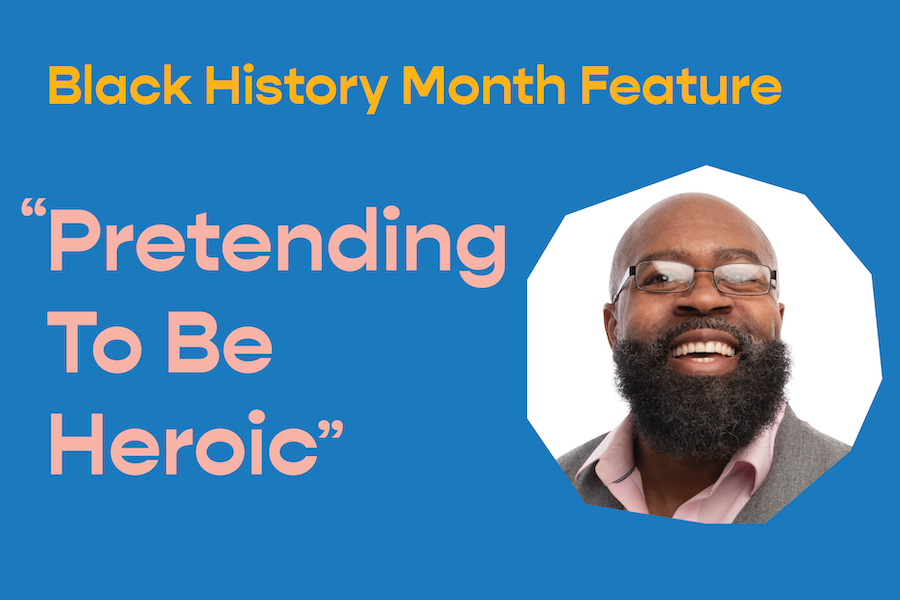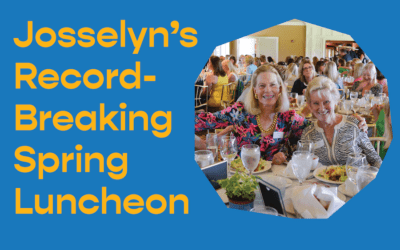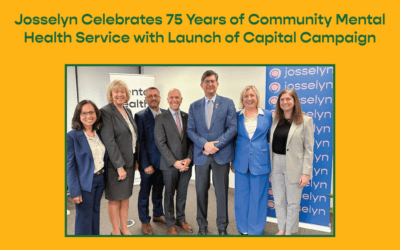By Langston Roberson
February 10, 2022
Black History Month Feature
This month we’re hearing from some of Josselyn’s staff who are proud members of the black community, and who will share what Black History Month and mental health means to them.
This edition of Talk features Langston Roberson, Data Services and Development Operations Manager at Josselyn.

Though I can’t let you know it, pride won’t let me show it / Pretend to be heroic, that’s just one to grow with / But deep inside [I’m] so sick / I can’t see ’em comin down my eyes / So I gotta make the song cry. [1]
These are the lyrics from “Song Cry,” one of my favorite songs by Jay-Z. This song and specifically these lyrics have always resonated with me because the concept of crying and showing emotion was, and in some instances still is, a sign of being weak or soft if you are a black male.
I can provide a laundry list of stats that illustrate the negative impact of mental health stigma on black men, including the stigma of being vulnerable or admitting you are experiencing a mental health issue, but I will focus on my own journey.
Approximately five years ago, I was let go from a job I couldn’t stand, raising a teenage daughter by myself, and trying to navigate Chicago’s dating pool. Needless to say, it was extremely stressful. As time went on and nothing was changing, I started to become depressed. My family, especially my mother and sister, could see I was struggling because of the toxic behavior I was exhibiting. But I denied their assumptions. I got defensive and combative, and thought, how dare you think I’m depressed, I’m Langston.
Discussing or admitting that you need help or that you’re struggling with your mental health is something we just didn’t do. We use phrases like suck it up, man up, or don’t be soft. I learned to flash my big smile and tell everyone I was cool. Luckily for me, I kept my head down, worked several jobs, volunteered at some local nonprofits, and eventually my situation changed. I felt better about myself.
Years later, I realized that I probably didn’t handle that situation well. The COVID-19 pandemic really crystalized for me the need to have a support system and admit that I might need help. That form of help for me came from a group of close friends. Early on, my friends recognized that the pandemic was affecting us mentally and that we needed to see each other, talk more often, and even pray together. What started off as a weekly Zoom call among us, turned into a prayer call, and eventually a weekly mental health check-in.
I realize that not everyone is lucky enough to have a group of close friends they can be honest with and vent to when needed. We don’t all have family members who recognize something is off and will ask questions about it.
But things are changing. Over the last few years, it has been an absolute joy to see that starting the conversation about mental health is becoming easier. I’m seeing it on social media with Instagram accounts like @thehealingchi and @blackmenfeel and with young black entertainers openly discussing the trauma they experience in their neighborhoods and being diagnosed with PTSD.
These conversations are happening, and I am extremely excited to be a part of an organization that is being intentional about joining the conversation and being a leader in helping to eliminate the stigma around mental health.
[1] Jay-Z. “Song Cry.” The Blueprint, Roc-A-Fella, Def Jam, 2002. Spotify app.
Langston Roberson is the Data Services and Development Operations Manager at Josselyn. He is a Chicago native and was raised on the south side. Langston has a 20-year-old daughter who is a sophomore at Valparaiso University. He is a devoted Cubs fan.




